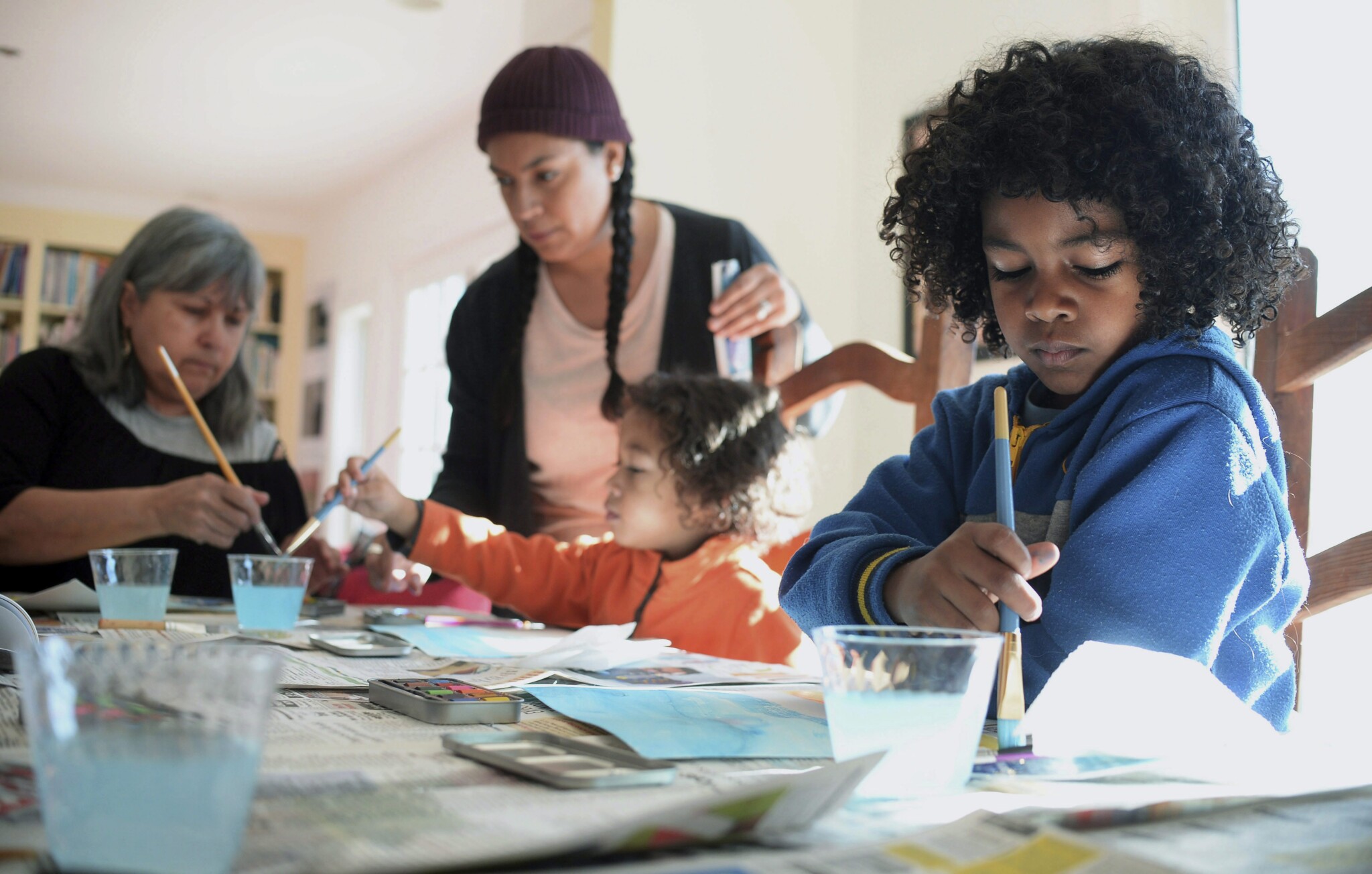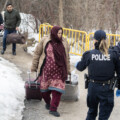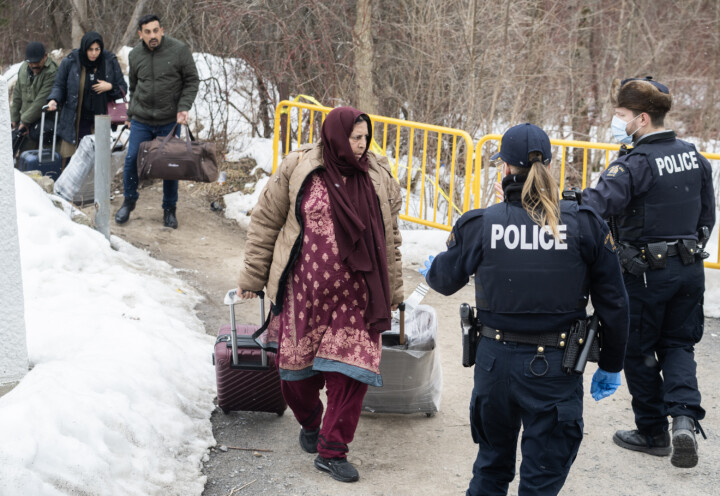American college professor Calvina Ellerbe Ph.D. is typical of a new breed of homeschoolers. Juggling the full-time career demands of university teaching and concerned about her own children’s social isolation, she joined millions of North American parents who turned to homeschooling for the first time during the COVID-19 pandemic. Like most of these new converts, the North Carolina TEDX speaker and certified parenting coach did not conform to the popular stereotype of the traditional home education parent population.
Distrust of “Big Government,” holding Christian moral convictions, and small-c conservative family values were the traditional touchstones of the homeschool community. While these are still the driving factors for many who choose to homeschool their kids, the appeal has expanded beyond these circles. What’s new is the surge in young professionals in major metropolitan cities holding more secular values who have swelled the ranks of the movement.
Motivating factors
Sharing her experiences in Psychology Today back in April 2024, Dr. Ellerbe spoke for many of the new converts. She spelled out five reasons why homeschooling was “the right choice” for her family during the worst days of the pandemic infection and school shutdowns. It all resonates with the observations of those most familiar with the recent rise in homeschooling here in Canada.
1. Educational inadequacy
Addressing concerns around the preparedness of regular high school graduates for university and college, compared to those homeschooled or international students from schools abroad.
2. Overexposure and safety
Eliminating worries about school safety, bullying, exposure to drug culture, and growing up too fast, particularly the so-called “early debut sexual push” (or peer pressure to engage in sexual activity) affecting pre-teens.
3. Family connection
The opportunity to strengthen the family connection with their children and to change the family dynamic, including a break from school-driven interventions and long commutes on yellow buses.
4. Love of learning
A desire to invigorate or restore the “love of learning” in their children, staving off the onset of disinterest, partying, and boredom with school routines.
5. Time freedom
Taking advantage of the opportunity for their children to learn faster, spend less time with seatwork, and explore topics that catch their interest in more depth.
The COVID bounce
These converts to homeschooling tend to be somewhat idealistic with high initial expectations, reflected in Dr. Ellebe’s aptly titled “Confessions of a Homeschooler.” What’s striking is how little it relates to, or is, motivated by the religious traditions that were so prevalent in earlier generations of home educators in Canada and the United States.
Parents opting for homeschooling from March 2020 through to June 2022 provided what Canadian home education expert Joseph Woodard termed the “COVID Bounce” in enrolment. In a spring 2022 Global Home Education Exchange (GHEX) webinar, Dr. Steven Duvall provided data gleaned from U.S. Census Bureau Household Pulse surveys. In February 2020, before schools closed, 6.7 percent of U.S. households reportedly homeschooled “one or more” children in the previous year.” In August 2020, at the height of the pandemic, the figure rose to 11.6 percent; then, in March 2022, after schools reopened, it settled back but was still higher, at over 10 percent.
While the survey questions were not exactly the same, Duvall claimed that reliable data showed the number of American homeschool households had “at least doubled” from pre- to post-pandemic. The available U.S. data also showed, according to Duvall, that American homeschool families also became “much more diverse.” The component represented by black family households doubled from 3.3 percent to 6.6 percent during the pandemic years. Similar trends were noted in Hispanic and East Asian households. It’s clear that the pandemic upheaval introduced homeschooling to a whole new populace, particularly in American inner-city communities.
The Canadian surge
The U.S. trend in increased homeschooling was mirrored by their neighbours to the north. While the vast majority (91.1 percent) of elementary and secondary students across Canada continued to attend public schools in 2020-21, the shares rose for private/independent schools (from 6 percent to 7.5 percent) and homeschooling households (from 1 percent to 1.5 percent).
Similar to the U.S., peak homeschool enrolment in Canada was in 2020-21. It’s leveled out but is still higher than pre-pandemic numbers. Statistics Canada reported that the number of reported homeschooled students reached 83,988 in 2020-21, double the number recorded in 2019-20 (40,611). The latest total number of homeschoolers is 54, 738 for 2022-2023. It grew the fastest in grades one and two.
By far, the highest total registration rates are in Alberta (20,865). The biggest anomaly is Ontario where home school registrations rose from 9,891 (2019-20) to 23,673 (2020-21) to 16,404 (2021-22), only to drop down to 9,210 (2022-23).
School choice promoters such as the Canadian Centre for Home Education (CCHE) and the Fraser Institute put a positive spin on any sign of homeschooling gaining ground. Of the 33,600 students introduced to homeschooling during the pandemic, Woodard of CCHE noted, some 23,900 (or 71 percent) remained, contrary to media reports that they abandoned it en masse.
Tensions in the homeschool family
Digging deeper into the Canadian data is a challenge, given the paucity of reliable information on the changing demographic patterns. Long-time homeschoolers are most attuned to the arrival of fresh converts. One of New Brunswick’s homeschooling champions, Rod Cumberland, president of Home Educators of New Brunswick (HENB), put the numbers in context. Supporters of this form of education in his province do fall into two distinct camps: Christian-religious and secular-non-religious. “Levels of interest and numbers are up,” he told me in March 2023, but “it’s the secular-based home education that’s growing dramatically.”
Homeschooling in New Brunswick, much like political party alliances, reflects the Anglophone-Francophone, urban-rural divide. Traditional homeschoolers tend to be based in Anglophone towns and villages outside the cities, and homeschooling remains relatively rare in Francophone New Brunswick. But the fastest growing New Brunswick groups in 2022-23 were in the main cities.
A close-up look at homeschooling in the city of Moncton where homeschooling is mushrooming provided a clear illustration of the dominant trend. Prominent Anglophone groups like Moncton Home Educators, founded in 2008, claim 632 followers, promote a secular “I love homeschooling” philosophy, and broadcast that it’s “a 100 percent inclusive group.” “This is not the place to discuss ‘hot topics,’ including the pandemic, immunizations, LGBTQ issues, politics, etc.” Comments, the site’s rules state, “must be done in an inclusive and respectful manner without speculation, bias, or political slant.” A second, much smaller Moncton group, MASHE (“Moncton Area Secular Home Educators) is even more adamant about keeping politics and religion out of the parent network.

Katja Heimann helps her children with studies in their home in Eisemroth, central Germany, Thursday, March 25, 2021. Michael Probst/AP Photo.
Assessing the pandemic’s impact
Homeschooling proliferated during the pandemic school shutdowns and blurred the distinctions between regular brick-and-mortar schools and home-based education. While some spontaneous experiments like provincial “emergency remote learning” and neighbourhood “pandemic pods” rose and disappeared like shooting stars, home education was solidified and, in many ways, transformed from a school option on the fringes to a more mainstream activity. Liberally-minded parents in urban centres swelled the ranks, but if it was to shelter their kids from “woke” culture activism, most were inclined to keep their motivations to themselves.
Today, provincial school systems have rebounded from the pandemic shutdowns and its collateral damage. Emergency home learning provided by local education authorities was, for the most part, abysmal. We all heard the common media refrain: “It’s been awful” and “We can’t wait to get the kids back to school.” It also blurred the formerly sharp distinctions between in-person schooling and home learning, now that it was redefined as “remote learning” led by certified public school teachers.
The arrival of a new breed of homeschoolers, epitomized by North Carolina’s Ellerbe and other certified parenting coaches, has changed the whole dynamic. “Homeschooling is not for everyone,” she advised her Psychology Today readers. Yet millions of parents now have experience filling the gap and teaching their own kids, from March 2020 onward for weeks and months on end. It’s harder now to argue that education at home delivered via video interactions by certified teachers was not a form of homeschooling. It’s also proving far more palatable to the public now that so many homeschoolers are not easy to peg as evangelicals on the fringes.











